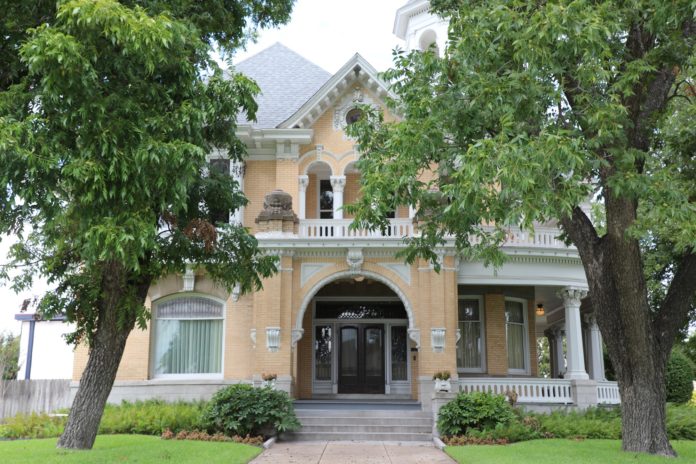
By Katie Stewart | Reporter
September 2018 marks the Cooper Foundation’s 75th anniversary.
The Cooper Foundation was founded in September of 1943 by Madison Cooper. After his parents died he took over the family home and eventually founded the Cooper Foundation as a way to make Waco a more desirable place to live.
Felicia Goodman, current Executive Director of the Cooper Foundation, said with only four executive directors since Madison Cooper died in 1956, the foundation has had thirty-one trustees in seventy-five years.
The Cooper Foundation continues to office out of the original Cooper house on 18th St. Cooper’s desk is just as he left it on the third floor of the house.
“For more than 70 years, the Cooper Foundation has been awarding funds to make Waco a better place in which to live. Hundreds of grants and millions of dollars have been given to support the arts, education, health care, social services, historical preservation and tourism, recreation, public safety, city beautification, and feasibility survey,” the foundation’s website says.
Goodman said she is very enthusiastic about a relatively new initiative the Cooper Foundation is working on in a partnership with the Waco Foundation.
“The thing I’m most excited about right now is that we are partnering with the Waco Foundation to do a lot of race equity work,” Goodman said. “Over about the last three years we’ve brought in a group called the Race Equity Institute … Our goal is to help people to have more constructive dialogue around race and racism.”
The program is open to community leaders with influence such as the mayor, the city manager and many others. Approximately 40 people undergo the training, which is free and by invitation only. With a deliberate awareness about demographics of participants, Goodman said that it is purposefully racially diverse.
Goodman said she is passionate about the partnership with the Waco Foundation for the Race Equity Initiative. She found out about it through Nicole Wynter, senior director of community investment and operations at the Waco Foundation.
“The Waco Foundation offered the very first [race equity program] and they didn’t really know what they were going to do next,” Goodman said. “After going through it that first time, I was like this needs to be offered more, to more people and we need to be a part of it.”
According to Wynter, in 2014 the Waco Foundation was approached by Baylor’s Community Race Relations Coalition who was initially doing the training. As a participant of the program, Wynter was impressed and thought that it’s method of delivery could be beneficial to Waco.
The Waco Foundation first offered the program in 2016. Wynter hopes that with the partnership with The Cooper Foundation the program can help community leaders navigate uncomfortable conversations in a productive way.
“I’m hopeful that people are able to feel more comfortable talking about race and to communicate it well,” Wynter said. “I hope [this program] will give people the tools, resources and introduction about that.”
In addition to the Race Equity Initiative, the Cooper Foundation also offers board governance training. This training helps local non-profit boards to better understand the value and importance of board diversity among other issues. The program also helps boards strengthen and clarify their board positions which then makes them more eligible for grants from the Cooper Foundation.
“We can’t fulfill our mission — to give grants — to organizations that are not strong. The first step to having a really strong organization is to have a really strong board,” said Goodman.
The Cooper Foundation also hosts a monthly professional development program called Nonprofit Network. For about 10 years, the Nonprofit Network has offered different monthly programs such as understanding donor demographics and understanding disaggregating data about those in need.
Recently, the Nonprofit Network hosted Alliance for Justice, a national organization that helps nonprofits understand how they can legally lobby. Goodman explained that often times nonprofits mistakenly think they cannot lobby for their interests.
“There’s a misunderstanding that nonprofits think that they can’t [lobby]. It’s so important that we do. The thing we can’t do is advocate for specific elected officials,” Goodman said.
Even after 75 years, the Cooper Foundation aims to uphold its mission and support for the city of Waco.





